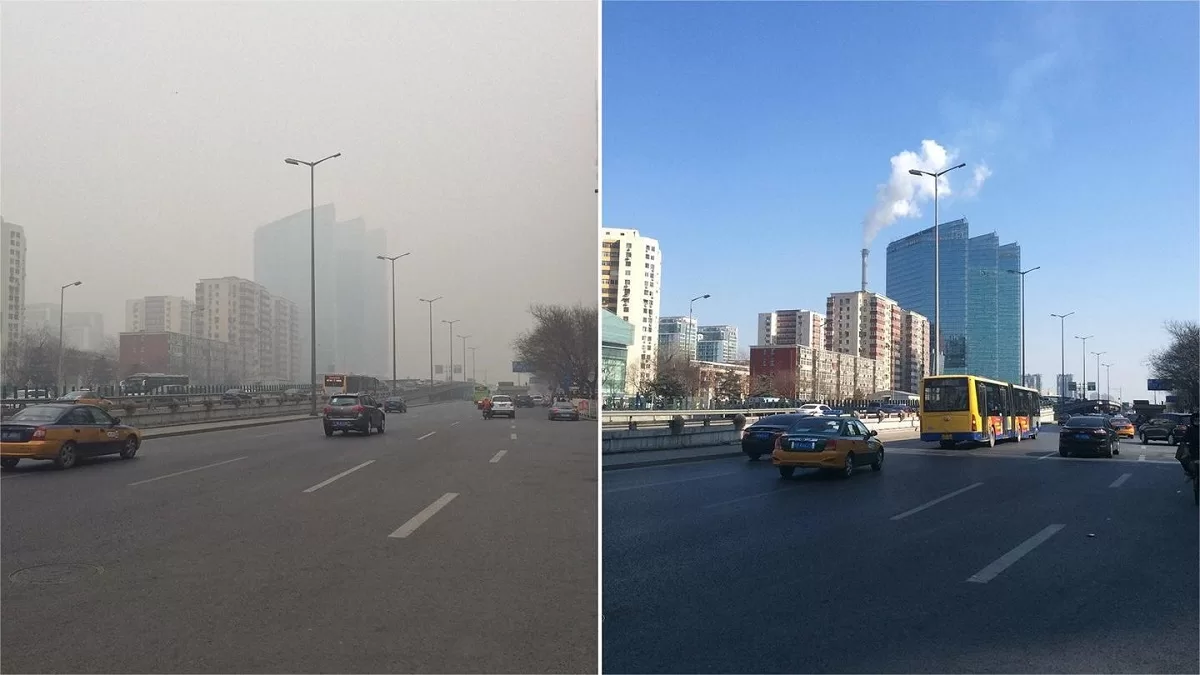Beijing, the capital of China, is notorious for its air pollution, with varying levels of severity throughout the year. The city experiences its worst air quality during the winter months, particularly from November to March. Several factors contribute to this seasonal phenomenon, creating a challenging environment for residents and posing health risks to the population.
One primary factor contributing to Beijing’s winter air pollution is the increased use of coal for heating. As temperatures drop significantly during the winter, households and businesses rely on coal-fired heating systems to stay warm. The combustion of coal releases a substantial amount of pollutants into the air, including particulate matter, sulfur dioxide, and nitrogen oxides. These pollutants contribute significantly to the deterioration of air quality.
In addition to coal combustion, weather conditions exacerbate the issue during the winter. The presence of temperature inversions, where a layer of warm air traps cooler air near the ground, prevents pollutants from dispersing effectively. This meteorological phenomenon creates a stagnant atmosphere, leading to the accumulation of pollutants in the air. With little wind to disperse the pollutants, they linger over the city, causing a visible haze and elevating levels of particulate matter.
The increased industrial activity during the winter months also plays a role in worsening air quality. Industries often ramp up production to meet the heightened demand for goods and services during the holiday season. This surge in industrial output releases additional pollutants into the atmosphere, contributing to the overall pollution levels in Beijing.
Furthermore, the winter season is characterized by reduced vegetation activity, as many plants enter a dormant phase. With fewer trees and plants actively absorbing pollutants, the capacity of the natural environment to mitigate air pollution is diminished during this time of the year.
The combination of these factors creates a perfect storm for poor air quality in Beijing during the winter. Residents often experience increased respiratory problems, and the city frequently issues air quality alerts and advisories. To address this issue, the Chinese government has implemented various measures, including restrictions on industrial activities, the promotion of cleaner heating alternatives, and the enforcement of stricter emission standards for vehicles.


